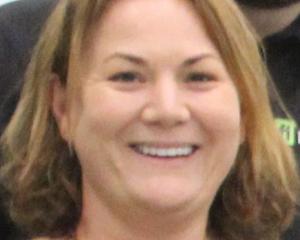The company, which was launched nearly six years ago, had its roots in Search and Rescue, born out of the Time Out boating triple fatality off the North Otago coast in May 2003.
While still involved in Search and Rescue, the business has evolved significantly and that same technology was now being transferred into the North American utilities and construction market.
After the Time Out tragedy, TracPlus Global founder Chris Hinch and rescue helicopter pilot Graeme Gale discussed whether a tracking system could be developed that would allow Mr Gale to see where his helicopters were at any time and share that information with other agencies, including the Rescue Co-ordination Centre New Zealand.
In late 2005, a small satellite-based tracking terminal was fitted to a helicopter and, after 18 months, TracPlus Global was launched as a tracking service provider in August 2007.
The company now delivered real-time global tracking, sensor monitoring and data analysis services to private, business, military and government organisations using mission-critical hosting infrastructure.
The technology tracked those operating ''in harm's way'' and allowed data to be shared with others with vested interests.
Like any start-up, it had been a ''long haul'' but the company had a strong base of primarily Otago-based shareholders.
All were passionate about the company and what it did and had a strong belief in it. There was a global network of customers with sales in 40 countries, Mr Hinch said.
Growing a global business out of Dunedin had not been without its challenges and one of the biggest was recruitment of smart, experienced and grounded developers.
The city was blessed with some ''exceptional developers'' but the company also found out that it was ''not for everyone''.
Being aware that a bad line of code could potentially cost someone their life brought a degree of focus and it was ''very grounding''.
And that underpinned what everyone throughout the business did, from accounts and customer service to developers and systems engineers, and gave a degree of gravitas.
''I'm not writing games ... we enjoy it, but it's serious stuff,'' Mr Hinch said.
He was ''immensely proud'' of the development team for their effort, focus and dedication ''for something that can easily keep you awake at night''.
The company had gone from being ''virtually unheard of'' to being both a very serious and ''quite disruptive'' player in a global market.
Three years ago, TracPlus secured a four-year contract to provide tracking for Australia's national aerial firefighting operations - the second-largest firefighting market in the world - which was a ''fairly significant success''.
There had been a ''very positive'' response from the firefighting agencies as a result of that project, and the company hoped to be successful when the tender came up again.
Latterly, the response in North America had been ''tremendously exciting'' and there was an opportunity now for the company to take that next step ''and go `OK, we have a global presence; how do we become a global company'. That's a very exciting place to be'', Mr Hinch said.
The company employed 15 staff, including eight in Dunedin, two elsewhere in New Zealand and five in the United States''. The company had a subsidiary in the US, a San Diego sales office and salespeople throughout North America.
A lesson Mr Hinch learned from his former boss, Ian Taylor, at Animation Research, for whom he had ''immense respect'', was to surround yourself with people who were passionate about what they were doing and were also ''very very good'' at their work.
He had huge respect for the board of TracPlus who provided ''tremendous support'', wisdom and careful counsel.
The company was building what it hoped would be a ''wildly successful'' global business and hoped to repay its investors for the faith they had shown.
New Zealand was an amazing country in which to innovate: ''You can almost think of it as a perfect laboratory for research and development'' - with ''every type of challenging environment'', which was a perfect test bed for the company.












